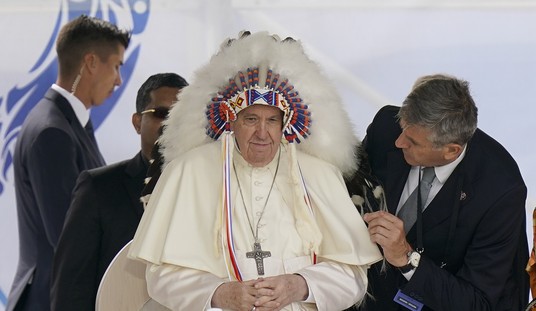How did the Department of Justice keep the FBI probe into Russian bribery and extortion a secret from Congress since it began in 2009? The attorney for an undercover confidential witness claims that the DoJ threatened her client with prosecution if he blew the whistle. Victoria Toensing tells The Hill’s John Solomon and Alison Spann that she has memos to back up that claim, raising even more questions as to why this information never emerged until this week:
An American businessman who worked for years undercover as an FBI confidential witness was blocked by the Obama Justice Department from telling Congress about conversations and transactions he witnessed related to the Russian nuclear industry’s efforts to win favor with Bill and Hillary Clinton and influence Obama administration decisions, his lawyer tells The Hill.
Attorney Victoria Toensing, a former Reagan Justice Department official and former chief counsel of the Senate Intelligence Committee, said Tuesday she is working with members of Congress to see if they can get the Trump Justice Department or the FBI to free her client to talk to lawmakers.
“All of the information about this corruption has not come out,” she said in an interview Tuesday. “And so my client, the same part of my client that made him go into the FBI in the first place, says, ‘This is wrong. What should I do about it?’”
Toensing claims that her client attempted to force the DoJ to allow him to notify Congress about the earlier investigation when reports of Russian interference emerged last year.
The undercover client witnessed “a lot of bribery going on around the U.S.,” but was asked by the FBI to sign a non-disclosure agreement (NDA) that prevents him from revealing what he knows to Congress, Toensing explained.
When he tried to bring some of the allegations to light in the lawsuit last year, “the Obama Justice Department threatened him with loss of freedom. They said they would bring a criminal case against him for violating an NDA,” she added.
Toensing’s client was the man who paid the kickbacks that eventually got one Russian convicted on corruption charges, she says, and who was named in indictments as “confidential source 1.” The case never expanded beyond the kickbacks themselves, despite the evidence of massive bribery and extortion uncovered by the FBI through this witness. The rest of the matter was shut down by the DoJ, Toensing claims, and no one is sure why.
According to the report by Solomon and Spann, congressional committees were not totally in the dark. Toensing claims that “multiple” committees — presumably the two intelligence committees, at least — have asked her client to testify to what he reported to the FBI. The DoJ, however, has demanded strict adherence to the NDA, even though a Congressional subpoena would overrule it. The committees may not have enough to justify a subpoena, though, which leaves Toensing’s client in limbo.
The bigger question, assuming the veracity of Toensing’s claims, is why the DoJ would insist on enforcing that NDA today at all. The prosecution was completed two years ago, and this touches directly on national security, especially in light of all the hysteria over Russian influence over the last couple of years. Shouldn’t Congress have an opportunity to find out about Russian influence from the six years previous to that? In fact, shouldn’t the DoJ have been briefing Congress on those nat-sec threats as they were occurring rather than wait eight years to decide whether to relax an NDA from a material witness that helped them win a corruption case in 2015?
All of this is mighty curious, and not just a little suspicious. If we’re going full-hysteric on Russian interference and possible collusion, then let’s make sure we’re looking at its full scope — starting with the strange “reset button” from Hillary Clinton in March 2009, the shocking reversal on missile defense in Poland and Czechia in September 2009, and the “more flexibility” comment from Barack Obama to Dmitri Medvedev in 2012 while castigating Mitt Romney for calling Russia our most dangerous geopolitical foe. If the revelations from Solomon and Spann over the last couple of days turn out to be valid, we may find some explanations for some of these odd events.








Join the conversation as a VIP Member